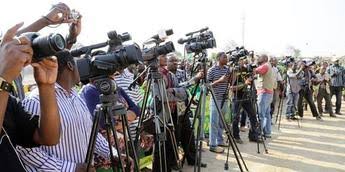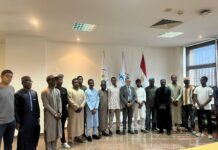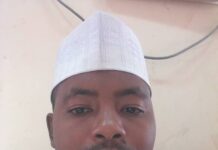The North and Nigerian Media: Each bird sings the song of its flock, by Abu Shekara
Nigeria’s Ademola Lookman is crowned Africa’s Footballer of the Year for 2024 by the Confederation of African Football (CAF) and the entire nation, North, South, East and West is agog with celebration. Sports lovers in all parts of the country are rejoicing in the laurel as an achievement by Nigeria as a nation.
Yet, for some, not all parts of the country should be proud of these types of feats. This is the subject of a recent post on Twitter by Reno Omokri about young Nigerians, who have achieved global fame, to which one Ugochukwu, from the South made a response. Omokri shared it on Facebook and it reads:
“My question is and has always been: what does northern youths (add/contribute) to Nigeria as a
Country? They (re) never celebrated anything/anywhere at home/abroad, not in sports, education, business/commerce, entertainment etc. I would like to know what they’re good in or at.”
Of course, Omokri, one Southern social commentator, who is known for his defence of Northern Nigeria, its people and culture has sprung up a strong and apt defence, invoking the names of young national and global achievers like Chevrolet Volt inventor, Jelani Aliyu, ace footballer Ahmed Musa and so on to prove the folly of that comment.
This is not, however, the first time such an assessment of the North is made. Neither will it be the last, despite several factual rebuttals by those who know better. And while in some instances this low opinion on Arewa is solely motivated by the urge to pull the section of the country down, particularly by elements who actually know the view they express is false, there are Nigerians who innocently think the narrative is true.
Read also: Media Chief slumps as funfair stampede claims lives of 35 children
Omokri points to this lack of awareness amongst many Southerners when he observes that, “the issue with many of us from the South is that we think (because) others are not as loud and obnoxious as ourselves in our arrogant display, then they are not achieving things.
He also buttresses his stand on the true position of the North by referring to the assessment of credible and impartial authorities.
“If not for Forbes,” he retorts, “we would (not) have (at) all believed that some (of those) people were the wealthiest folk in Nigeria,”
“There are more young entrepreneurs in Kano”, Omokri argues, “than in the whole of the Southeast”, obviously about the part of Nigeria Ugochukwu, the target of his intervention hails from.”
These facts are presented in a tone that even a Northerner could not have expressed more poignantly and indignantly. The issue is that the North as a region of Nigeria has not cared to make the facts known often enough. What Omokri referred to as not being “as loud” is actually not having the capability to be heard at all.
Most people in Southern Nigeria honestly know little or nothing at all, about Jelani Aliyu, even when he was DG of the National Automotive Design and Development Council (NADDC). The few who know him are for the most part, automobile enthusiasts, who may acknowledge his achievement as a global stage innovator but do not necessarily recognise him for the part of the country he hails from because there is no effort from any quarters to promote any consciousness of that about an icon like Jelani Aliyu or anyone else.
Ahmed Musa is Africa’s highest World Cup Goal scorer and he got all his three goals for Nigeria but that was not on the front burner at the last AFCON, when he was given a mere chaperone role by the technical crew. Neither was Ace Real Sociedad striker Sadiq Umar in any reckoning in the Eagles’ camp before he left the AFCON due to “injury”, only to be fit enough to play in the very next match for his Spanish club.
There is no doubt that if these national icons from the North were from the South, they would have commanded the pervasive appeal for the entire nation to stand for them like their Southern counterparts, who have found fame across boundaries, from Lagos to Maiduguri, Port Harcourt to Sokoto. So, the issue is not so much that of sectional sentiment, as it is of the unequal capacities of the two parts of Nigeria in handling and promoting their individual and collective achievements and successes to the world.
Southern Nigeria are light years ahead of the North in not only recognising but also showcasing the accomplishments of their society and even though the bar for recognition in that part of the country is high, no achievement is ignored or unsung. This cumulates and projects the successes of the South so much that it creates for them, an unassailable pedigree in all human endeavours. And the tradition is sustained through the effective use of all media especially the mass media, in the preponderance of which the Southwest particularly, is unmatched by any other part of Nigeria.
In fact, from this perspective, the Southern attitude that Omokri partly described as “loud” can be viewed as a positive attribute, more so in exclusion of the “obnoxious” habit of some Southerners, of being incapable of celebrating their heroes, without belittling another part of the country. Even so, it is solely up to the North, which is the target of this pull-down, to disprove this negative narrative, otherwise silence is admission, even of a false claim.
It was the Northern legend and founding hero, Sir Ahmadu Bello, who said the North would blow its own trumpet because everybody else was busy blowing their own. That remark by the Northern Premier must have inspired the choice of the trumpeter as the image in the crest of the Northern Region Ministry of Information. It seems though, that since the split of the region into twelve states in 1970, the North has all but forsaken and altogether lost Sardauna’s trumpet.
Of the hundreds of private media establishments of all categories in Nigeria, only a handful are of Northern ownership. And even the slightest possibility of bridging this gap is eliminated by the dearth of patronage and support for the few media professionals in the North, which renders them incapable of setting up media outfits. In this situation, subscription to media services by governments, corporate organisations and individuals from the North is almost exclusively to Southern professionals and establishments, which sustains the trend.
Therefore, positive coverage of Northern Nigeria in the nation’s press and media, is solely by commercial patronage and it lasts until the chips are down and regional interests are at stake. For, according to a Hausa proverb, “Each bird sings the song of its flock.”
The old proverb, “who pays the piper dictates the tune” may apply to the Nigerian media in normal times but on critical occasions, when media practitioners and establishments find it obligatory to make a choice, the adage, “blood is thicker than water” is more appropriate.
Abu Shekara is a media practitioner based in Sokoto State.
Follow the Neptune Prime channel on WhatsApp:
Do you have breaking news, interview request, opinion, suggestion, or want your event covered? Email us at neptuneprime2233@gmail.com





